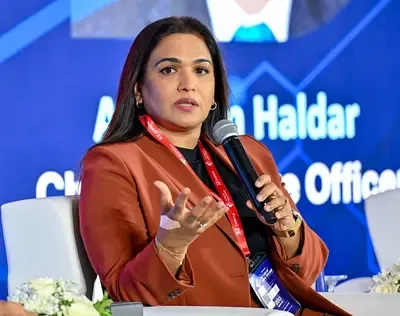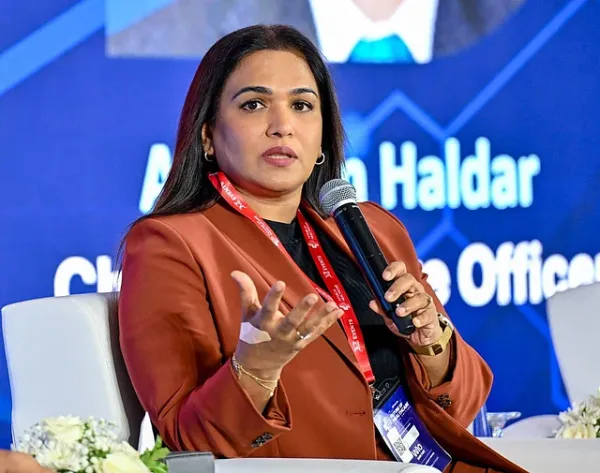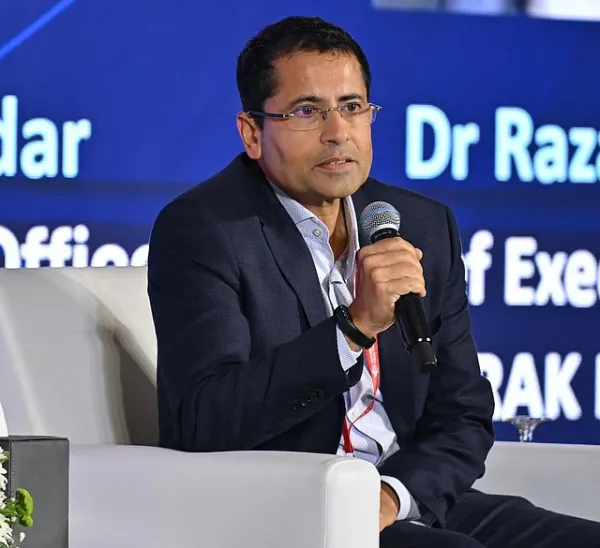
AI could cut diabetes treatment costs by up to sixfold in the UAE, and its impact may extend beyond diabetic care to healthcare spending in general. Currently, diabetic patients in the country spend between Dh7,000 and Dh48,000 per year, though these numbers mainly reflect insurance coverage rather than out-of-pocket costs. Average insurance expenses for a typical individual are estimated at Dh7,000 to Dh8,000 annually.
At the 'CEOs of Care | From Algorithms to Outcomes' session, part of the 5th Future of Healthcare Summit 2025 organised by Khaleej Times, leaders from across the region explored how technology, innovation, and collaboration are reshaping care delivery. The discussion highlighted how predictive health and AI tools are already being used to monitor patients remotely, manage chronic diseases, and lower insurance costs.
Dr Raza Siddiqui, CEO of RAK Hospital, shared that AI-driven care models have led to significant reductions in both healthcare expenses and HbA1c levels for diabetic patients. However, he noted a structural challenge: hospitals and clinics are still not rewarded for preventing admissions.
Stay up to date with the latest news. Follow KT on WhatsApp Channels.
“Even when we prevent complications and keep patients healthy, the system doesn’t incentivise that,” he explained, underlining the need for reforms in how healthcare delivery and reimbursement are aligned.
Patient trust and clinician oversight were recurring themes. Dr Shanila Laiju, Group CEO of Medcare Hospitals, said AI should complement, not replace, clinical judgement. “AI helps identify patterns in data that support faster and more confident diagnoses,” she explained. “But the ultimate decision must remain with the clinician. These tools are designed to aid judgement, not substitute it."

Dr Shanila Laiju. Photo: Muhammad Sajjad
She also emphasised that clear communication and patient consent are crucial, especially as AI becomes integrated into hospital workflows. Patients must understand how their data is used and feel confident that technology is supporting, not overriding, human care.
Aligning technology adoption with payment structures was another key concern. Dr Mohaymen Abdelghany, CEO of Fakeeh Hospitals, pointed out that while AI and integrated care can reduce hospital visits, the current reimbursement system continues to reward admissions rather than prevention.
“We invest heavily in solutions that reduce complications and improve patient outcomes, but the incentives don’t always align,” he said. He stressed that involving medical teams early in AI development ensures the technology addresses clinical needs and encourages adoption rather than resistance.

Dr Mohaymen Abdelghany. Photo: Muhammad Sajjad
The discussion also emphasised the importance of patient-centred design in AI initiatives. Arindam Haldar, CEO of Purelab, explained that many projects fail when implemented as top-down mandates. Using diabetes management as an example, he highlighted how integrating genetic data, continuous glucose monitoring, and electronic health records could offer real-time insights that prevent complications.
“If AI helps patients avoid complications and saves time for clinicians, it succeeds,” he said. “If it’s imposed purely for returns or compliance, it fails.”

Arindam Haldar. Photo: Muhammad Sajjad
Across the session, participants agreed that the future of AI in healthcare hinges on three core factors: responsible data use, alignment of incentives, and maintaining patient trust. As hospitals move from reactive care to preventive, outcome-based models, AI can play a pivotal role in reducing costs, improving patient outcomes, and supporting clinicians, provided it is implemented thoughtfully and ethically.
The conversation at the summit made one point clear: AI is not a futuristic luxury but a practical tool for reshaping healthcare. From remote monitoring to predictive analytics, it offers tangible benefits for patients, clinicians, and the broader healthcare ecosystem, signalling a shift toward smarter, more efficient, and patient-focused care in the UAE.
Dubai pilots GCC-wide patient record system, pushes AI, virtual health care UAE: Healthcare must grow smarter, not just faster, says top executive-
Typhoon Matmo Impact: Heavy Winds Almost Swept Away Man With His Door; Viral Video Sparks Scare

-
Sudden cardiac death: Why do people die suddenly from heart attacks? Learn more and be vigilant now

-
South Korea: Highways partially congested on Chuseok holiday

-
South Korea: Highways partially congested on Chuseok holiday

-
NTPC Bongaigaon Extends Support to Young Football Talent from Salakati-Revised
